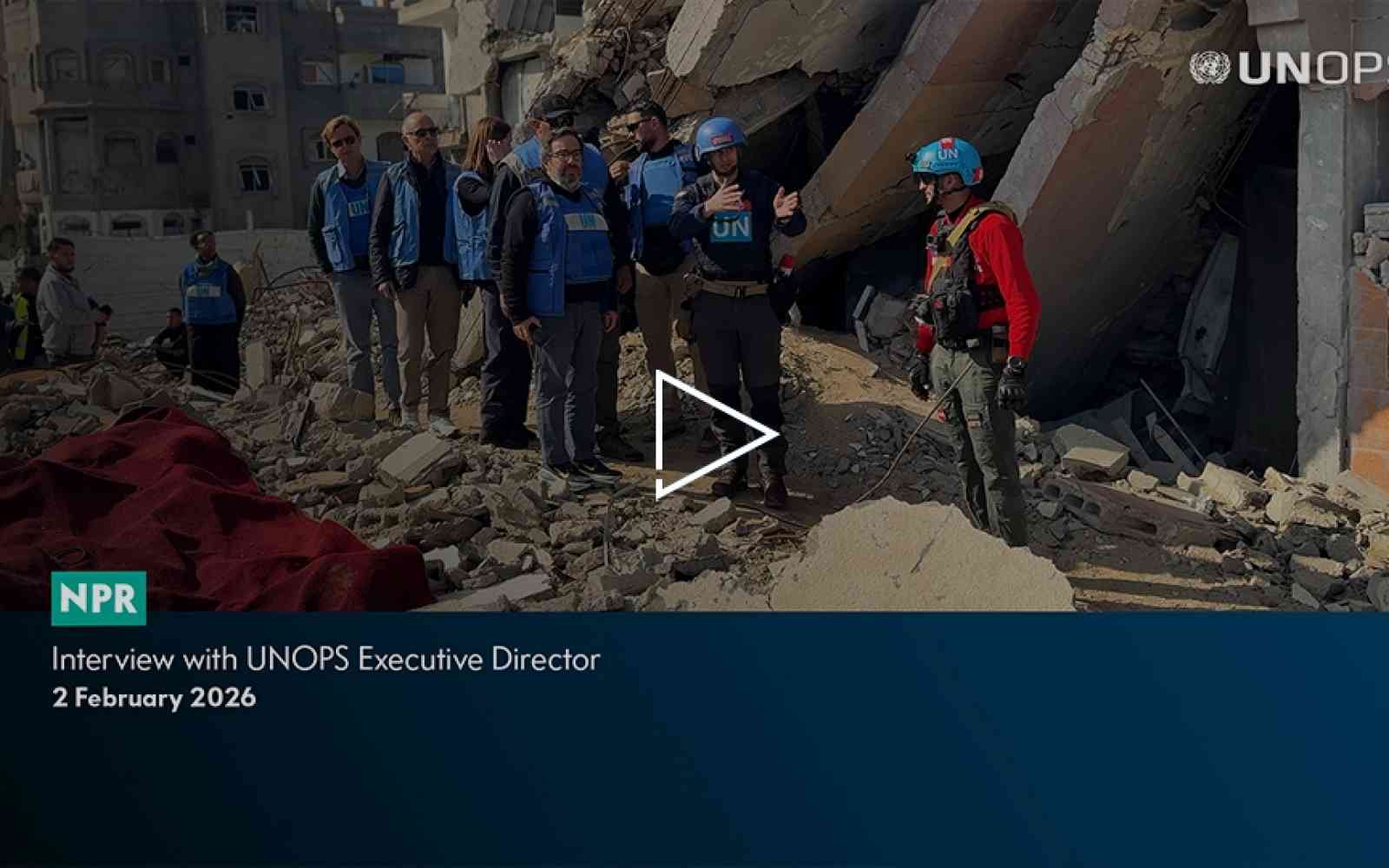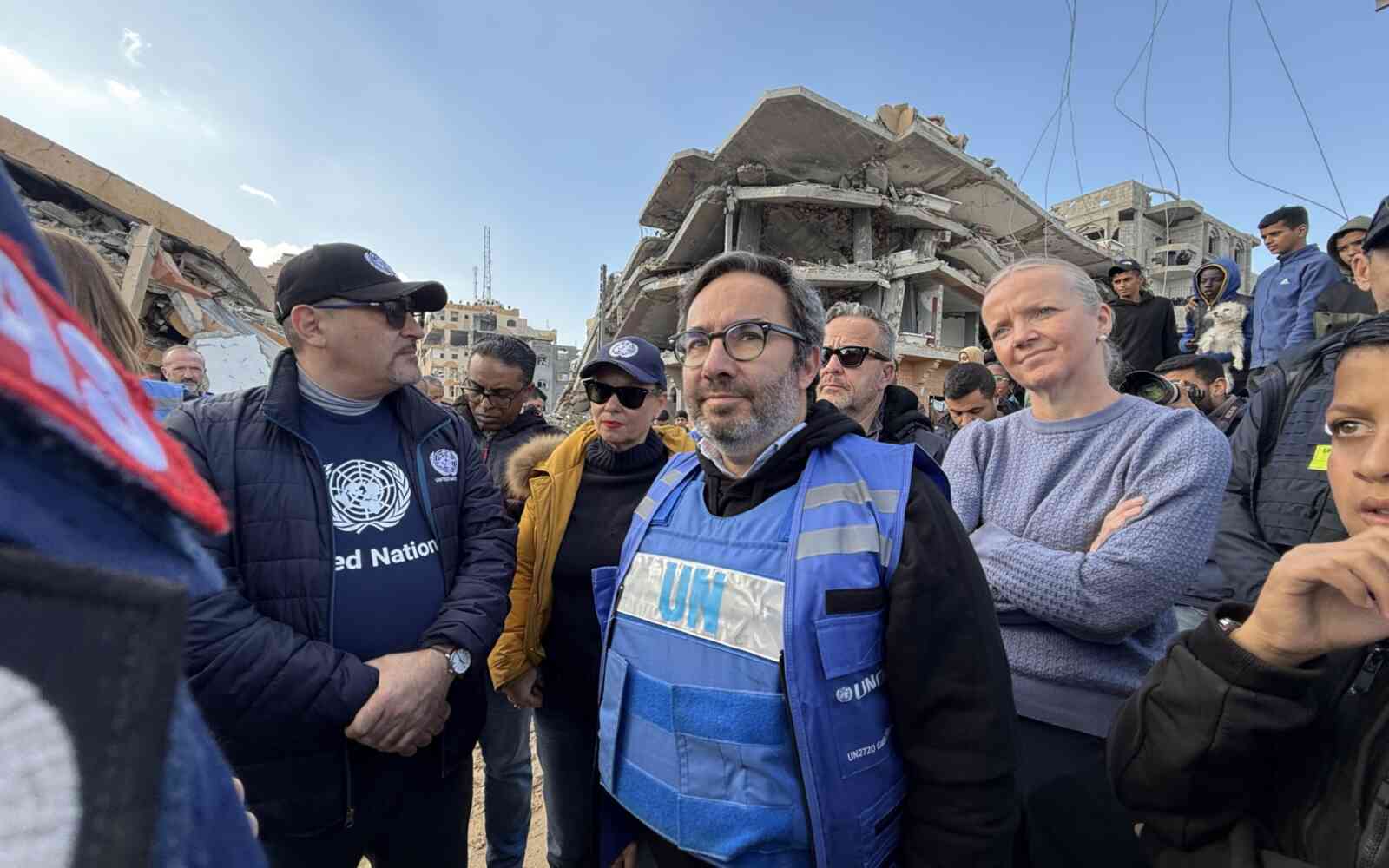The United Nations Office for Project Services (UNOPS)
Declaración sobre el bloqueo de la ayuda a Gaza y el mecanismo 2720 de las Naciones Unidas
Declaración de Jorge Moreira da Silva, Secretario General Adjunto de las Naciones Unidas y Director Ejecutivo de UNOPS (en inglés).
After over 11 weeks of complete blockade, the Israeli authorities have allowed the UN and partners a brief window to resume delivery of aid into Gaza.
This is a drop in the ocean of what is urgently needed.
UNOPS is working with our sister agencies in Gaza to supply fuel to bakeries that are now restarting with the small amount of incoming wheatflour. It powers hospital generators. It moves ambulances.
To do this, our team run convoys to destroyed areas and evacuation zones. Operating at great risk to access our fuel storage tanks.
As the Secretary-General said today, the UN is ready to scale up our life-saving operation in Gaza and respond to the needs of people, wherever they are.
We have presented our plan to do this.
A plan that is rooted in the non-negotiable humanitarian principles and built on accountability, transparency and trust.
The UN 2720 Mechanism - that UNOPS manages- is there to expedite, streamline and accelerate the delivery of aid into Gaza.
It is recognised by the key stakeholders and broader international community.
It is mandated by the Security Council.
Since the beginning of its implementation almost 1 year ago, this mechanism has reduced bureaucracy and fragmentation and improved efficiency, transparency and predictability. The problem was never of a logistics nature, but rather a matter of political will and security.
And precisely when these security conditions improved, the Mechanism worked effectively during the first phase of the ceasefire. It worked effectively to temporarily alleviate the suffering of the population bringing aid to those in need.
***
We cannot make aid conditional on political and military aims.
We can not turn starvation into a bargaining chip.
So, let’s get things done with what works based on transparency & accountability
Rather than solutions that risks undermining the UN Security Council’s authority and fragmenting the response.
We and our humanitarian partners have the expertise, distribution mechanism and monitoring systems to deliver aid at scale across Gaza.
We just need the political willingness and the trust for it to work.
Let us do what we are here to do - to ensure rapid, unhindered, and safe humanitarian relief for all civilians in need.
Tras 11 semanas de bloqueo, se ha permitido la entrada temporal a Gaza de los camiones de ayuda humanitaria de la @ONU_es.
— UNOPS en español (@UNOPS_es) May 27, 2025
Esta ayuda vital es una gota en un océano de necesidades urgentes. A través del mecanismo #UN2720, UNOPS trabaja para facilitar la ayuda humanitaria. https://t.co/LM06O9tkUa
UNOPS is working with our sister agencies in Gaza to supply fuel to bakeries that are now restarting with the small amount of incoming wheatflour. It powers hospital generators. It moves ambulances.
To do this, our team run convoys to destroyed areas and evacuation zones. Operating at great risk to access our fuel storage tanks.
As the Secretary-General said today, the UN is ready to scale up our life-saving operation in Gaza and respond to the needs of people, wherever they are.
We have presented our plan to do this.
A plan that is rooted in the non-negotiable humanitarian principles and built on accountability, transparency and trust.
The UN 2720 Mechanism - that UNOPS manages- is there to expedite, streamline and accelerate the delivery of aid into Gaza.
It is recognised by the key stakeholders and broader international community.
It is mandated by the Security Council.
Since the beginning of its implementation almost 1 year ago, this mechanism has reduced bureaucracy and fragmentation and improved efficiency, transparency and predictability. The problem was never of a logistics nature, but rather a matter of political will and security.
And precisely when these security conditions improved, the Mechanism worked effectively during the first phase of the ceasefire. It worked effectively to temporarily alleviate the suffering of the population bringing aid to those in need.
***
We cannot make aid conditional on political and military aims.
We can not turn starvation into a bargaining chip.
So, let’s get things done with what works based on transparency & accountability.
Rather than solutions that risks undermining the UN Security Council’s authority and fragmenting the response.
We and our humanitarian partners have the expertise, distribution mechanism and monitoring systems to deliver aid at scale across Gaza.
We just need the political willingness and the trust for it to work.
Let us do what we are here to do - to ensure rapid, unhindered, and safe humanitarian relief for all civilians in need.











